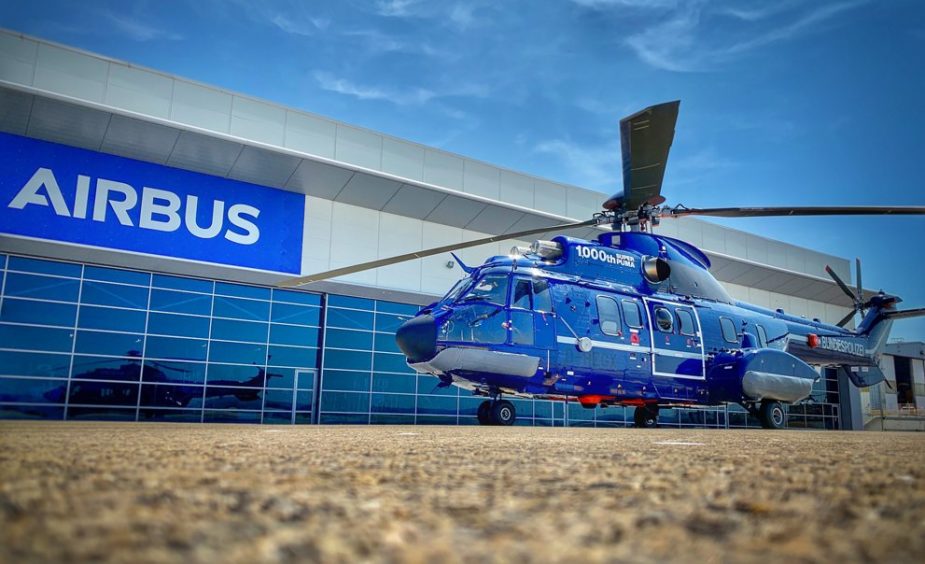
Airbus has said it expects the Super Puma helicopter to fly “for decades to come” despite being shunned by the North Sea oil industry.
The manufacturer said on Friday that it has completed its 1000th delivery of the helicopter model following four new choppers for the German Federal Police.
Once a major type in the North Sea, the Super Puma family of aircraft has not returned to service in the sector following a series of fatal crashes, most recently off Norway in 2016.
Airbus said the helicopter is used by sectors including law enforcement, military and for offshore transport.
The model is still used in the oil and gas industry in regions including South America.
Celebrating delivery of the 1000th Super Puma, Airbus chief executive Bruno Even said: “The Super Puma family of civil and military helicopters has consistently performed well thanks to its ability to appeal to many different mission segments, whether you’re fighting fires, building power lines, transporting troops, or saving lives in extreme environments.
“Thanks to our close partnerships with long-standing customers like the German Federal Police, who we are honoured will operate our 1000th Super Puma, we are able to continuously improve so that this important product continues to meet the evolving market needs for decades to come.”
Super Pumas were grounded globally following the 2016 crash off the island of Turoy which killed 13 people, although it was given clearance to fly again over UK waters a year later.
Some North Sea operators have taken impairment charges on the value of their owned and leased Super Pumas as a result of the model not returning to service here.
Many of the aircraft have been repurposed elsewhere.
However the incidents have not dented the demand for the model in other industries.
Airbus said it is operated by nearly 100 customers in 59 countries, “appreciated for their versatility and ability to operate in extreme environmental conditions”.
The German police force is one of the world’s largest operators of Super Pumas.
In January, Mr Even hailed a successful 2018 for the Super Puma family of aircraft, delivering a total of 356 rotorcraft and logged gross orders for 413 helicopters during the year.
It also booked 148 orders for light twin-engine helicopters of the H135/H145 family and secured 15 orders for the next-generation H160.
Before the 2016 crash, a Super Puma went down in the North Sea near Peterhead in 2009 killing 16 people on board.
Then in 2013 another fell into the sea near Sumburgh airport which killed four people.
The Crown Office said last month that it is in the “final phase” of preparing a fatal accident inquiry into that crash.
Offshore unions have made repeated calls for a public inquiry into whether commercial pressures were impacting safety following the series of crashes.
The North Sea market is now dominated by the S-92 helicopter manufactured by Sikorsky, following the exit of the Super Puma family.
Recommended for you

